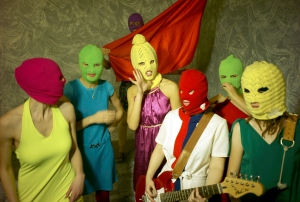Paris Fashion Week, February. The video is shaky, the quality is low, but the tall figure that strides out of the swanky building is unmistakable: Jacob Elordi has arrived and has subsequently brought young women to their knees.
The comments flow thick and fast: “He looks like a rockstar”; “He knows he’s hot”; “His gum chewing, his walk, his outfit”; “No wonder why Cassie…”: it’s close to clinical insanity, the level of thirst that the mere sight of his tall stature invites as the Tiktok, which has been viewed millions of times, shows him walking through throngs of fans in the city without doing much at all.
Such is the era of Elordi. The actor, famous for roles in Eurphoria and The Kissing Booth, has quickly attracted the kind of mass hysteria like likes of which was last seen over a decade ago when Twilight thrust Robert Pattinson into the spotlight and into parasocial relationships that feasted on his handsome, exotic aura, when his mere presence sent fans into a state of shock.
His role in Netflix’s The Kissing Booth (which, much like Twilight, spawned several arguably unnecessary sequels) was what initially thrust him into the pages of teen magazines, but the Australian has seen a surge of cross-generational fame for his role in the culture-defining series Eurphoria. In the series, which stars similarly famous Gen-Zers Zendaya and Sydney Sweeney, he plays the sinister Nate Jacobs, at first glance a carbon-copy popular jock, but over the course of two seasons is revealed as a sophomoric Patrick Bateman type who harbours a slew of issues, amongst them a deeply disturbing madonna-whore complex.
While a regular talent agent would worry about casting an up-and-coming star as such a repellent character, Elordi has managed to slink up the Hollywood totem pole without accruing the kind of negative associations his role might attract. It could be argued that the furore over Elordi is life imitating art: in the show, the characters of Maddie and Cassie both have their turn at being beholden to his whims, with the latter having her entire self esteem hinging on whether he throws her a glance in the school hallway. In one scene, she tells him: “You can tell me what to eat, what to wear, what to do, who to see.” In real life, you see it play out to a lesser degree as smart, forward-thinking women drop everything they know about fuckboys and surrender at the altar of his conventional good looks.
It’s a feverish kind of obsession that until recently was mostly reserved for Timothee Chalamet and Harry Styles – a vastly different ‘type’ of man, one might venture, with a different stats card.
Many have joked that Chalamet, with his affable disposition, fine bone structure and romantic-poet fashion sense, was ‘written by a woman’. Meanwhile, Elordi, who could be straight out of a John Updike novel, emits the kind of toxic masculinity that we thought we had collectively rejected as a culture. As it turns out, there just wasn’t anyone hot enough for us to make an exception.
Despite this, whoever is styling Elordi is smart: they know that times have changed. In the 90s, similar hunks of the moment such as Brad Pitt, Matt Damon and Leonardo DiCaprio tread a well-worn path to iconic status. But today, it is no longer good enough to turn up to a premiere in a Hugo Boss suit and tie and call it a day. In the age of ‘soft boys’, we expect men to embrace their femininity through their fashion choices. To be even a significant blip in the cultural timeline these days is to abandon the fusty-dusty perceptions of what it means to be a Hollywood heart-throb to the past and wear some goddamn Gucci.
A few months back, Elordi made an appearance on Late Show with Jimmy Fallon to promote the new series of Eurphoria. Elordi, donning a bomber jacket, trousers, socks and loafers, sits in the chair like he owns it; he sits with the entitlement of a prince, with the casual flair as if he was chilling with his bros in his living room. His outfit says soft boy, his posture says fuck boy, and his ‘fit’ during the appearance incites a slew of examinations on social media.
Meanwhile his appearance at Paris and Milan fashion week exude a far more masculine edge; the heavy leather jacket, presumably worth thousands, is his only obviously fashion-forward item as the rest of him looks like he rolled out of bed and is thirty minutes late for football practice. He will submit to a sock-and-loafer combo, but that’s as far as he goes.
Elordi’s love life attracts even more intrigue: a serial rejector of the ‘don’t date your co-star’ rule like every Hollywood hustler before him, he has been spotted grabbing iced coffee with some of the most famous Gen-Z starlets around: the aforementioned actress/singer Zendaya, his Kissing Booth co-star Joey King and the supermodel Kaia Gerber are amongst his ex list. More recently he was rumoured to be dating College Admissions Bribery Scandal baby Olivia Jade, however they have since been rumoured to have broken up. In a Tiktok from the past few days, a grainy video shows him and Euphoria co-star Dominic Fike flirting with Kardashian Klan member Kendall Jenner.
Perhaps Elordi’s allure lies in his atypical jockness as an antidote to the modern soft boy; if Timothee Chalamet will bring you flowers, write you poetry and help wash the dishes after dinner with your parents, Jacob Elordi gives off the air like he’ll forget your birthday, text you “what’s up?” at 2am and a year down the line insist you’re both just “hanging out”. There’s plenty of good looking young actors out there – but Elordi has managed to capture a moment with his portrayal of a teenage psychopath that leaves young women (and men) frothing at the mouth. Only time will tell whether he can make it last.


